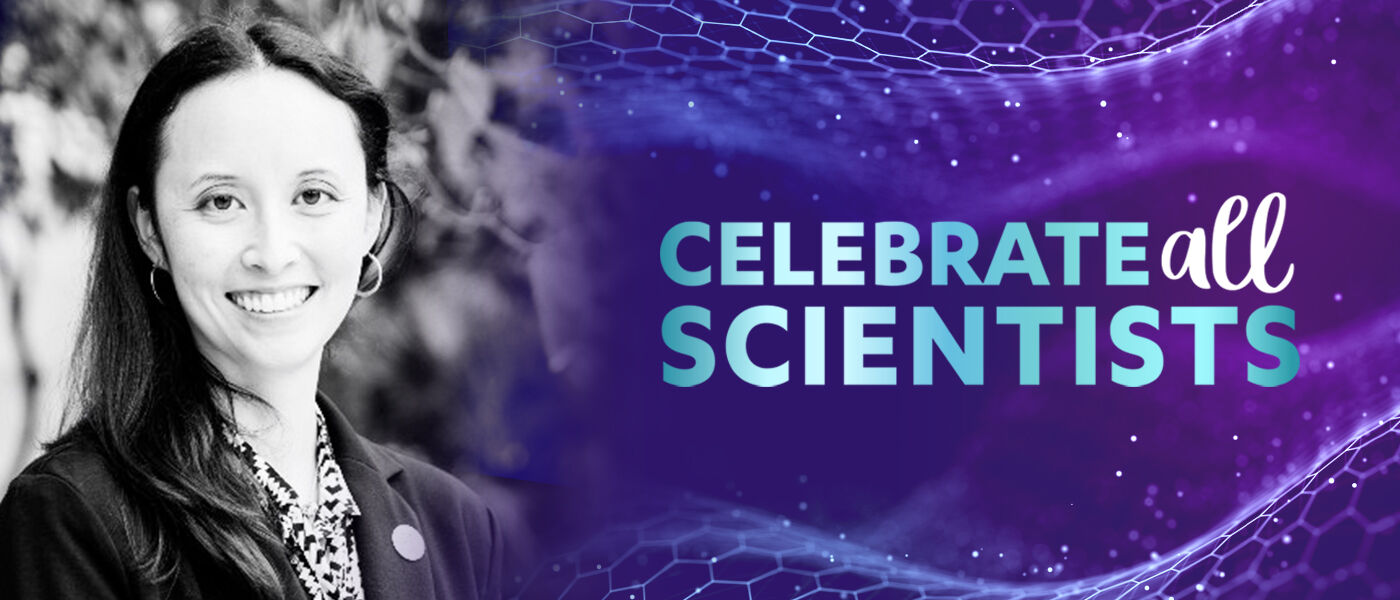Celebrate All Scientists: Naomi Ondrasek

Today is National Disability Independence Day and LSC is celebrating Dr. Naomi Ondrasek!
Dr. Naomi Ondrasek is a neuroscientist focusing on how hormones and brain chemicals affect animal behavior. Her research explores why animals are social and enter groups together. She is also a committed policy advisor and senior researcher at the Learning Policy Institute in Sacramento, CA. Dr. Ondrasek received her PhD in Integrative Biology from UC Berkeley and her foundation in science has inspired her to advocate for educational equity.
Among Ondrasek’s successes, she also fights an invisible autoimmune disease day in and day out. Inflammatory Bowel Disease, or IBD, is when the body cannot differentiate an invader tissue for its own tissue, so it begins attacking the body. In the case of IBD, you can experience symptoms ranging from diarrhea to extreme pain. “It feels like you’ve swallowed a ninja star,” she says. “It feels like you’ve swallowed broken shards of glass.” Ondrasek can’t sleep at night when the pain is that bad.
Brain Chemicals and Social Connections
Ondrasek tries not to let her health issues detract from her research. “The big question I ask,” she says, “is ‘Why do animals get into social groups?’ ” Among people, social relationships are incredibly important to well-being. That’s also true, she notes, for some other species.
One of her projects reviewed research on certain chemicals produced by the brain. There are several types of these nonapeptides (NO-nah-PEP-tydes). They are tiny protein-like chains of nine (hence the prefix nona-) amino-acid bits. These chemicals can circulate in blood, controlling processes throughout the body. A well-known example is oxytocin (OX-ee-TOH-sin). It helps control when mammals give birth and produce milk for their young.
When oxytocin and other nonapeptides act in the brain, they can influence social behavior, she explains. For instance, oxytocin can provide a sense of love or trust in another person, such as a baby or mate. And because so many species produce virtually the same chemicals, Ondrasek says, “things that we discover in rodents and even birds … help us as we look at these behaviors in humans.” Her June 2016 report reviewing this work appeared in the journal Ethology.
A Supportive Work Community
Ondrasek notes that “Though I have all these health issues, I was able to persist in my career.” She is thankful for supportive academic advisors and coworkers. By law, employers usually must make reasonable efforts to help employees with disabilities. Yet for her employer to understand her particular needs, she notes, “I have to be very willing to share something that’s very intimate and potentially embarrassing.”
Ondrasek has been fortunate to work with very positive, supportive people who don’t focus on her disability. Ideally, she notes, all employers and potential colleagues will one day see such accommodations as no big deal, akin to providing office lighting and heating to workers on dark winter days.
